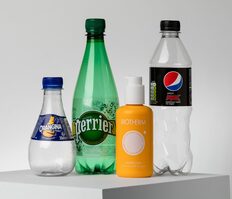- The project will cost around €200 million, including €150 million for core technology and €50 million for site infrastructure.
- The plant will process 50,000 tons of post-consumer PET waste annually.
- The project is expected to create approximately 150 direct and indirect full-time jobs.
- A feasibility study and due diligence process will be conducted before finalizing the investment.

Project Overview
Carbios and Indorama Ventures are collaborating to build a manufacturing plant in Longlaville, France, utilizing Carbios' enzymatic PET bio-recycling technology. This plant will be the first of its kind, focusing on fully bio-recycled PET production.
Investment and Capacity
The project requires a capital investment of approximately €200 million, with €150 million allocated for Carbios' core technology and an additional €50 million for site infrastructure. The plant aims to process around 50,000 tons of post-consumer PET waste annually, equivalent to 2 billion PET bottles or 2.5 billion PET trays.
Job Creation and Economic Impact
The initiative is expected to create approximately 150 direct and indirect full-time jobs. It aligns with the Grand-Est Region's ambition to become a leading territory for PET circular economy, contributing to both environmental sustainability and economic growth.
Feasibility and Financial Support
Following positive initial analysis, a feasibility study and due diligence process will be conducted to ensure the technical and economic viability of the project. Subject to successful evaluations, Indorama Ventures will co-invest in the project. Carbios has secured a €30 million loan from the European Investment Bank and expects further non-dilutive financial support from the French Government and the Grand-Est Region.
Technological Innovation
Carbios' technology, named C-ZYME™, uses an enzyme-based biological process to convert PET into its core monomers, enabling the production of 100% recycled and infinitely recyclable PET. This innovative approach addresses the growing concern of plastic pollution and supports the transition to a circular economy.

